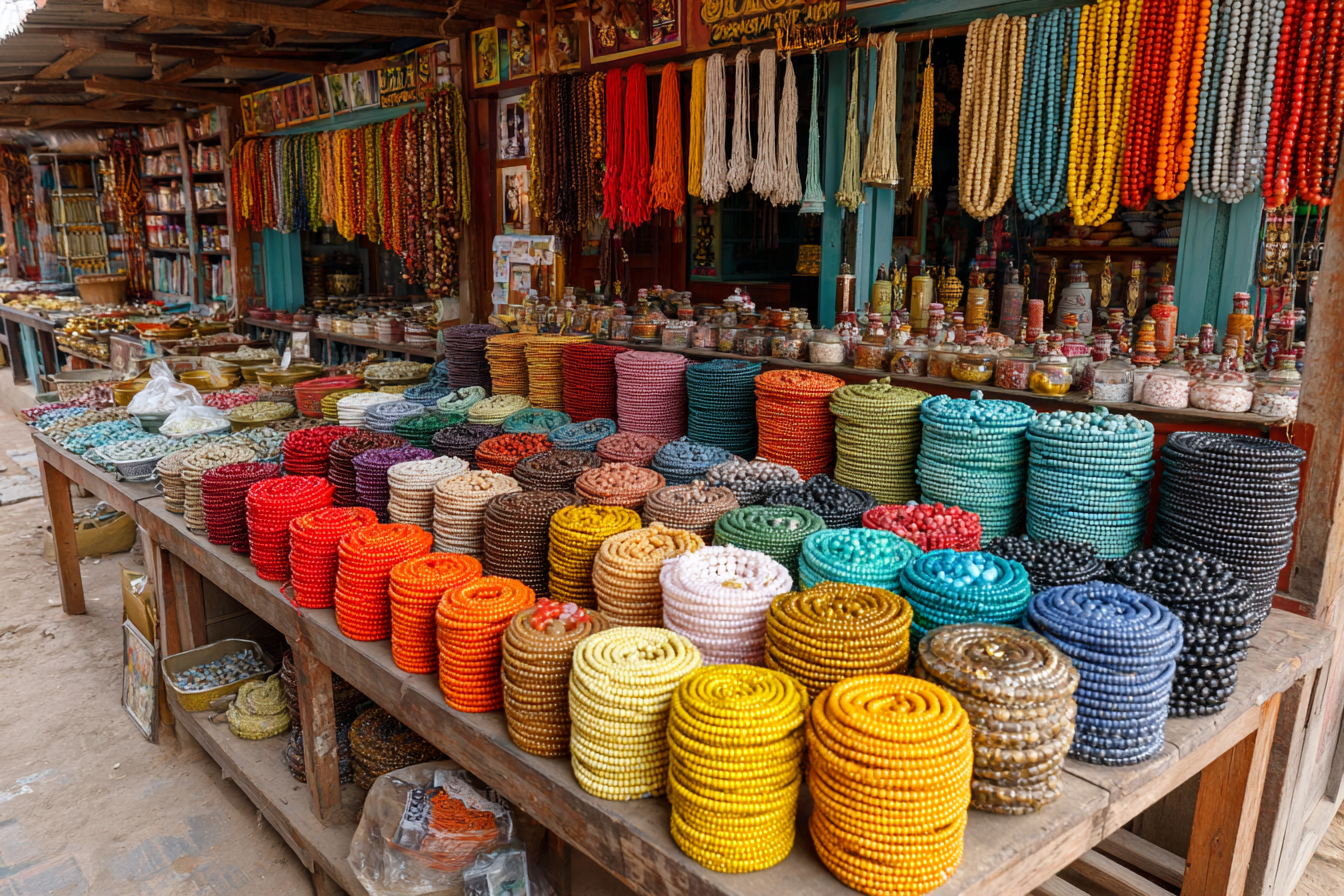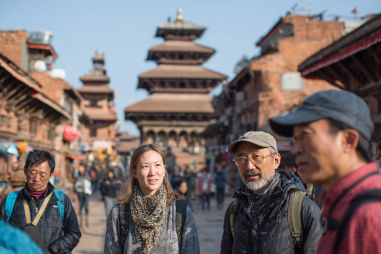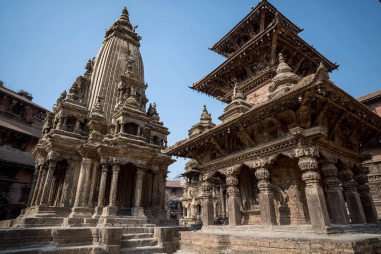Visiting Lumbini, the birthplace of Lord Buddha, is an enriching experience filled with spirituality, history, and culture. Beyond its sacred sites and serene monasteries, Lumbini offers travelers a wonderful opportunity to bring home more than just memories. The town is full of vibrant markets and shops that showcase an array of unique souvenirs, locally crafted handicrafts, and meaningful gifts that tell the story of this historic region. Whether you’re a first-time visitor or a seasoned traveler, this Lumbini shopping guide will help you discover the best places to shop, the must-buy treasures, and savvy tips for making the most out of your market adventures.
Popular Souvenirs and Handicrafts in Lumbini
When it comes to souvenirs, Lumbini presents a beautiful blend of cultural and spiritual items. Handicrafts here often reflect Buddhist themes and local artistry, making them perfect keepsakes or thoughtful gifts. Among the most popular items are:
- Thangka Paintings: These are traditional Buddhist scroll paintings usually depicting deities, mandalas, or scenes from Buddha’s life. Created on cotton or silk, thangkas are rich in color and symbolism, making them highly prized by collectors and spiritual seekers alike.
- Buddha Statues and Figurines: Available in various sizes and materials such as brass, bronze, or wood, these statues serve as both decorative items and spiritual reminders. Each style may represent different regions and historical periods of Buddhist art.
- Prayer Wheels and Mala Beads: Prayer wheels are small hand-held tools inscribed with mantras, while mala beads are used for meditation and prayer. Both carry spiritual significance and are commonly found in Lumbini’s shops.
- Handwoven Textiles: Nepalese fabrics, scarves, and shawls made from wool or pashmina are known for their quality and intricate patterns. These textiles make practical souvenirs as well as beautiful gifts.
- Local Jewelry: Handmade jewelry often incorporates traditional Nepalese designs, semi-precious stones, and symbols like lotus flowers or the Om sign.
- Wood Carvings and Pottery: Artisans skillfully craft wooden masks, figurines, and pots that reflect the local heritage and artistic style of the region.
Where to Shop: Markets and Shops in Lumbini
Lumbini has several bustling markets and quaint shops where you can explore authentic products and meet the friendly locals who make them. Some of the best spots to shop include:
- Lumbini Bazaar: Located near the main entrance of Lumbini’s sacred garden, the bazaar offers a lively atmosphere with stalls and shops selling souvenirs, handicrafts, and clothing. The bazaar is ideal for a walk-through to get a general sense of available goods and products.
- Main Market Area around the Sacred Garden: This area features numerous shops specializing in religious artifacts, Buddhist books, and prayer items. You’ll often find several family-run stores with handpicked, meaningful gifts.
- Local Artisan Workshops: Some artisans open their workshops to visitors, allowing you to see the crafting process firsthand and purchase unique pieces directly from the makers.
- International Buddhist Centre Shops: Many monasteries and Buddhist centers have gift shops that sell high-quality spiritual items imported from different Buddhist countries, offering a diverse selection of unique products.
Tips on Negotiating Prices
Bargaining is a common practice in Lumbini’s markets, but it’s important to approach it with respect and a friendly attitude. Here are some tips to help you negotiate effectively:
- Do Your Research: Have an idea of the typical price range for items you are interested in before you start bargaining.
- Start Low but Fair: Begin your offer at around 50-60% of the initial asking price to leave room for negotiation, but avoid undervaluing the artisans’ work.
- Be Polite and Smile: A friendly demeanor can go a long way in building rapport and encouraging the seller to offer a better price.
- Know When to Walk Away: If the price isn’t right, it’s okay to politely decline and walk away. Often, sellers will call you back with a better offer.
- Buy in Bulk for Discounts: If you’re purchasing multiple items from the same vendor, ask for a discount or bundle price.
Unique Gifts Related to Buddhism
Lumbini’s connection to Buddhism means many gift options carry profound spiritual significance. Here are some distinctive Buddhist-related gifts you can find:
- Mantra-inscribed Items: From prayer wheels and scrolls to jewelry, items inscribed with mantras like “Om Mani Padme Hum” are believed to bring blessings and protection.
- Meditation Cushions and Mats: Handmade cushions used for meditation are both functional and symbolic of spiritual practice.
- Books and Scriptures: Collections of Buddhist teachings or texts, often translated into various languages, are available for those interested in deepening their knowledge.
- Scented Incense and Essential Oils: Widely used in Buddhist rituals, these fragrant gifts help recreate the serene ambiance of Lumbini’s temples back home.
- Buddhist Musical Instruments: Items like small bells and Tibetan singing bowls make unique and meditative gifts.
Supporting Local Artisans
When shopping in Lumbini, you have the wonderful opportunity to support local communities and preserve traditional crafts. Purchasing directly from artisans helps sustain their livelihoods and encourages the continuation of time-honored techniques. To maximize your positive impact:
- Buy Handmade Items: Seek products that are clearly crafted by local hands rather than imported mass-produced goods.
- Ask About the Maker: Showing interest in the story behind your purchase often leads to meaningful conversations and a greater appreciation of the item.
- Choose Fair-Trade Shops: Some stores explicitly support fair trade practices, ensuring artisans receive a fair price for their work.
- Consider Local Materials: Items made with indigenous materials are usually more sustainable and culturally authentic.
Cultural Etiquette While Shopping
To have a respectful and enjoyable shopping experience in Lumbini, it’s helpful to be aware of some cultural norms:
- Greet Vendors Politely: A simple “Namaste” with a smile is a warm way to start any interaction.
- Handle Religious Items with Respect: Avoid touching sacred items such as Buddha statues or prayer books carelessly.
- Dress Modestly: While shopping, especially near temples, modest attire is appreciated and shows respect.
- Use Both Hands: When handing money or receiving items, it is customary to use both hands as a sign of respect.
- Be Patient: Bargaining and shopping can take time; approaching it with patience creates a pleasant atmosphere for both buyer and seller.
Shopping in Lumbini is much more than just acquiring souvenirs; it is an immersion into the culture, spirituality, and creative spirit of the region. By choosing thoughtful gifts and crafts, respecting local customs, and supporting artisans directly, your shopping experience can enhance the meaningfulness of your visit. Take your newly acquired treasures home, and let them be beautiful reminders of the rich history and peaceful aura of Lumbini.







